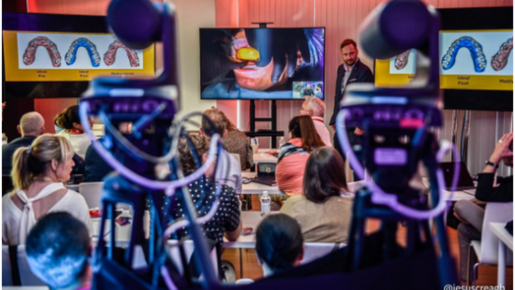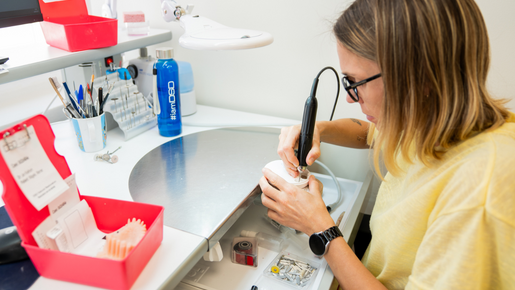DSD Provider participants get access to the DSD Planning Center smile design and treatment planning services.
If you’re reading this article, you've probably decided that it’s time to make a change in your dental office or career and are looking for the right course to help you.
When it comes to finding the learning experience that best suits you, we know that the choice can be overwhelming. That's why in this article we will provide you with an in-depth review of the DSD Provider course and curriculum so you can decide whether it's the right choice for your current goals.
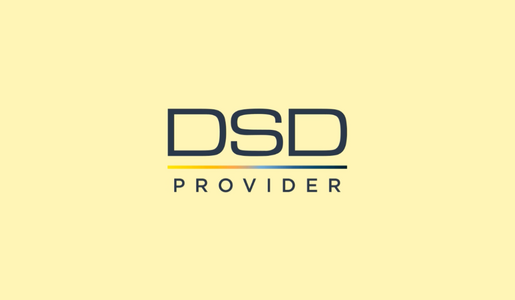
DSD Provider course overview
DSD Provider is an entry-level course with DSD and you do not need to have done a DSD course before signing up.
It is implementation focused and designed to:
1. teach pragmatic systems that solve the challenges of daily clinic life
2. help dental professionals to provide high quality dentistry in a more simple way
To do this, the curriculum is geared towards solving several common issues we often hear about from dental professionals:
- How to provide exceptional smile transformations in a predictable way
- How to treatment-plan complex cases
- How to achieve consistently good results from (and communicate better with) the dental lab
- How to connect with ideal patients
There are two ways to participate in a DSD Provider course:
1. Join us in-person for two days
2. Watch the 6 sessions in bitesized format online, by choosing the DSD Provider On Demand course.
A unique feature of this course is that it offers access to the DSD Planning Center, which is usually reserved for DSD Clinics. As a participant, you have 3 months after your course to complete the mandatory training to onboard in the workflows. After this, and once you pass the online assessment, you can then order the complimentary DSD Upper & Lower Design included in your DSD Provider ticket.
What criteria are we using to review the DSD Provider course?
We will briefly set out the pros and cons of the course, take a look at who the ideal participants are, and compare it to other DSD courses.
| Pros | Cons |
|---|---|
| 15 CE credits | Requires financial investment |
| In person and online options available | Time away from clinic for in-person course |
| Learn DSD workflows | Additional study required to work with DSD Planning Center |
| Option to work with the DSD Planning Center | |
| Connect with DSD team | |
| Get to know like-valued professionals |
Who is the course a good fit for?
Good fit
The DSD Provider course is designed for any dentist who is serious about returning to their dental office to implement what they learn. It is an ideal course for dentists looking for pragmatic solutions to overcome the challenges they are facing.
It is also a good choice for you if you would like the opportunity to access the DSD Planning Center products and services to offer smile designs and digital guided dentistry solutions for your patients. However, the course content will benefit you whether or not you want to work with the DSD Planning Center afterwards.
Bad fit
If you are not interested in implementing DSD in your practice, or willing to make changes to how you do things, this course is likely not for you.
If you are looking for a purely theoretical course, DSD Provider is not the right option for you.
If you want a hands-on course in clinical techniques, DSD Provider is not the right choice for you.
| Course | Price | Duration | Topic |
|---|---|---|---|
| DSD Provider / DSD Provider On Demand | $2,900.00 / $900 | 2 days / 2 months self-paced | Solutions to common problems faced by dental professionals |
| DSD Online | $35/month | On-demand online learning | Interdisciplinary workflows, clinical performance, patient experience, DSD App, smile design, guided dentistry |
| DSD Clinical | $7,500.00 | 3 days | Clinical execution, guided dentistry, DSD workflows |
| Designing Smiles with Christian Coachman | $4,200.00 | 2 days + on-demand livestream course | 5 fundamental moments of the smile design process |
| DSD Aligners Livestream | $1,700.00 | 3 weeks | Protocols to treat orthodontics cases with aligners |
| DSD Clinics Certification coaching | $6000/ month | 6-9 months (approx) | DSD implementation in your office to become a certified DSD Clinic |
What past participants have to say
In the first edition of the course, in May 2024, dentists from countries such as Germany, Hungary, France and Spain experienced this course for themselves.
Here are the reactions of five participants to the DSD Provider course and how they believe it will benefit their practices going forwards.
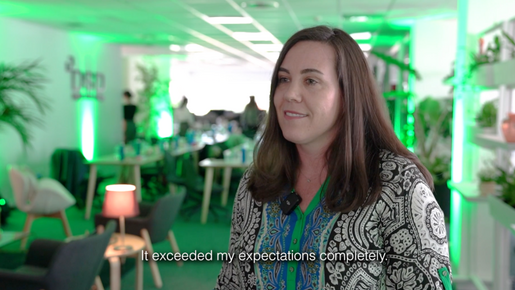
“They have a system which I have dreamed of…”
Dr Fabrice Marciano owns a dental practice in Nice, France and is a generalist with a focus on neuromuscular dentistry.
He believes that the systems taught at DSD Provider are exactly what is missing in his clinic to easily replicate processes, save time and experience less stress.
What made you come to this course?
“I had some difficulty with my lab and was trying to find a solution to make the final outcomes match all the issues that I treat with a great deal of accuracy and difficulty and try my best to do. But most of the time, it’s not as much as I would like to.
That's why I focused on DSD and I said, "Let's go do the training course, learn about it and see if it's the solution.”
Do you think that what's been shared here is going to be that thing you were looking for?
“Yes, 100%. Because of many things. The dynamic of your group is a very beautiful company: there are smart people. And the difference between your lab and other labs, that I see, is that specialist dentists are there so they understand exactly what we need more than a classical technician lab where most of them know or have got some knowledge of dentistry, but not the same as a dentist. Here there is a team with dentists so we can communicate and we can find the solution. And they have a system which I have dreamed of, so I hope that it will work. We will test if it works and if the esthetics follow too, because the esthetics is the cherry on the top of the cake.
It's not so easy but I am sure that the function and the way are good. That is, for me, the solution so I have a lot of hope in it.”
Is there anything that you've learned in the past two days that has surprised you?
“The combination of all the systems. Christian has talked about the systems and exactly what I am missing. I know how to do things as an artist but I need someone with strict rules which I don't have. With these, I have a guide to do the same each time, like a system. I also think I will gain a lot of time and have less stress too.”
“the content is very high quality and I see that it can be reproduced faithfully later in daily practice in your dental office”
Dr Jose Menacho is an orthodontist who owns a dental clinic in Jerez, Spain. He believes the DSD Provider course was engaging and captured the attention of attendees – and his intention in attending is to implement the DSD interdisciplinary digital planning solution into his clinic workflow.
Why did you attend the course?
“We have an interdisciplinary team doing all types of treatments, and my intention in doing this course is so that the entire clinic workflow - not only orthodontics but also surgery, prosthodontics, dental esthetics - is done with comprehensive digital planning before the patient’s treatment begins.”
What do you think of the course?
“Honestly I’m loving it because not only are they good speakers, who are very didactic and capture the attention of all the attendees, but the content is very high quality and I see that it can be reproduced faithfully later in daily practice in your dental office.”
Is there anything new in particular you have heard at this course?
“It’s not something new, because I did something with DSD in the past - not a course as comprehensive as this one but a webinar, a type of small course as well - but it’s very interesting because in this course we’re seeing what this digital smile design, this digital planning of our patients’ treatment, consists of.”
Would you recommend this course?
“I recommend it completely. Not only because it’s interesting but because I believe it’s obligatory. I can’t conceive of orthodontics or of our practice as orthodontics professionals without complete digital planning of our patients’ treatments. I think you either do this course or you get left behind. Either you board the train or you’re as good as ‘dead’. Rather than recommended, it’s obligatory.”
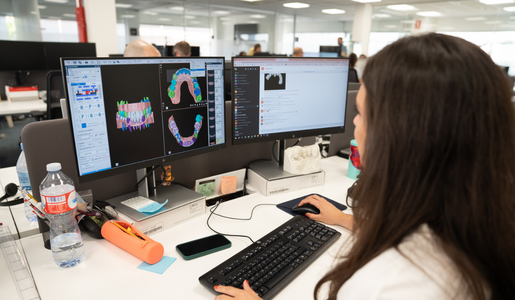
“it's just amazing to see how far digital dentistry has grown”
Dr Inés Heinrich owns a private practice in Stuttgart, Germany which brings together different specialties. After hearing about DSD years ago, she was happy to finally be able to attend DSD Provider in Madrid this June. She believes that DSD is the future and can help dentists to achieve great things.
How did you first hear about DSD?
“Actually, I think I heard about it years ago because one of my master colleagues did a DSD course with Christian. I've been trying to do this course for years but then there was Covid happening, and then the days just didn't fit with my family. But in the end, it worked out and now I'm here in Madrid.“
How have you found the DSD Provider course?
“I really liked it. I think that DSD is top notch in digital dentistry. I really enjoyed meeting other dentists from all over the world. And for me, it's just amazing to see how far digital dentistry has grown because there are some cases that I wouldn't even have thought about that are possible nowadays with digital dentistry. So for me, it's really mind blowing and I would definitely recommend it to everyone. It exceeded my expectations completely.”
Is there anything in particular that you saw during the course that made you think: ‘I want to do this in my clinic’?
“I'll definitely try to have my lab work more digitally. Actually, yesterday I said to some colleagues that I'm really glad because so many things that they have introduced us to I'm already doing. So, especially Christian’s lectures were really pushing me that I'm doing the right thing.
I like the part about working with a professional lab that covers all the disciplines, because I have some cases in which I'm just really not sure about where to start. And I think maybe they can give me hints and some ideas about how to treat these complex cases.”
Is there anything during the course that stood out to you or that impressed you?
“The last session that we just had with the completely edentulous patients and what is possible. I always thought that it's really hard to scan edentulous people, but there are options. I just would never have tried it out on my own without seeing a case presentation before. So that really is something that stood out for me today.”
If you were to recommend this course to other colleagues in Germany and other dentists in Germany, how would you explain it to them?
“If you want to take a step towards future dentistry, you definitely have to be part of DSD because they're way ahead of their time.
And I'm not sure if it's only in Germany, but I think we're starting to lag behind because we've grown used to our analog dentistry. And when you have a working system, sometimes it's hard to just try out something new.
I think if you want to stay ahead of the times, you just have to go digital. And that's why I really recommend going to a DSD course and being part of this future movement.”
“In the end, it's all for the patient”
Dr Ulrike Lechler is a clinic owner in Berlin, Germany. She first heard about DSD on social media and registered for DSD Provider after attending Designing Smiles with Apa and Coachman in 2023. She believes that DSD is the future of dentistry and how we should be treating patients.
What made you decide to attend this course? What caught your attention?
“I saw it for the first time on Instagram. I like to do a whole kind of dentistry that covers every part of it: orthodontics, prosthetics, surgery and stuff like that. And I found that the DSD concept is covering exactly that in a very modern way, in a very digital way and that made me curious about it.”
Do you have a particular thing that you were looking to solve or question that you have?
“My first course was in Miami with Apa and Coachman and that caught me and then I got more interested in the concept itself. So I decided to come here to Madrid.”
Is there anything about the course that stood out to you?
“This complete, comprehensive way of thinking that covers all the parts of dentistry. And then you can work together with international colleagues. In the end, it's all for the patient - to get the best result for your patient - and I think that's challenging and amazing and how I like to work.”
In terms of implementing these strategies in your clinic, what do you see as the next step for you?
“My next step will be that I will prepare to grow my practice and my clinic a little bit more to implement this kind of concept into it.”
Do you have any advice or recommendations for other dentists in Germany about DSD and about the course?
“To think in a more modern way because this is the future of dentistry, I think. And this is how we should treat patients to get the best results for them and for us, because in the end, it's quite fulfilling to do that kind of dentistry.”
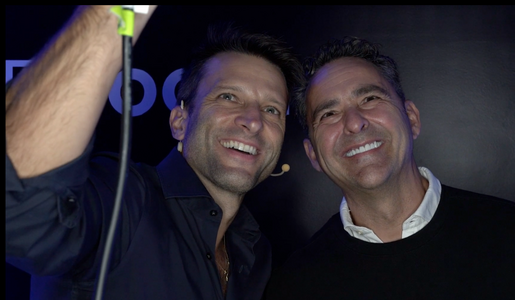
“DSD helps you a lot to plan both simple and also very complex cases”
Dr Majtényi Balázs is a dentist from Debrecen, Hungary. He believes that dentists work under immense stress on a daily basis and that DSD can lift some of that pressure. He also found the in-person interaction he was looking for on the DSD Provider course.
How did you first hear about DSD?
“I had a few problems with case planning, putting together cases, which is very complicated from a different point of view. That’s how I ended up seeing videos on YouTube about what your options are, you know, when you want to plan big cases and how you need to plan them. That's the way I found Christian and then I ended up here.”
What made you decide to come to a DSD course after watching Christian online?
“I felt like I needed to be here in person to see in real life how they are working. So to see the clinical execution and also the planning. And I love to interact with you guys, because it's a different experience for you if you can be here in person and you can talk to those people who invented things or already figured out how to do it. So that's the reason I'm here, to get in a good relationship with them.”
What would you say is your number one challenge in your clinical life right now?
”My number one challenge? That's a good question, because I can barely say one.
There's a lot. Mostly it's finding a good team, keeping this good team. And trying to give the people who come to your clinic the best possible opportunities that you can give. That's why I'm trying to provide them with the best possible care that they can get.”
Do you think that DSD systems and workflows could help with that challenge?
“Definitely. I think DSD helps you a lot to plan both simple and also very complex cases. And teach you how to think about dentistry in a way that no one teaches you anywhere in the world.
If you want to be complex and do complex treatments for your patient, I think it is the best option that you can have.”
What has been your favorite session in the course?
“My favorite session? It's hard to pick just one, because I think this course is very complex. I'm really interested in different fields, like surgeries, and also prosthetic things, the prosthetic parts.
If I need to pick one, I would pick the Clic Guide concept that we were talking about - the stackable guides - because I believe that the future of implantation is going this way. So we are guiding the prosthesis and also the implant positions.”
What are you planning to do after the course?
“I would like to implement this knowledge as soon as possible. I already have some cases. I hope I can implement all this knowledge that we got here as soon as possible. I want to go home, put everything together - everything that you need to plan these cases - and start to work with you guys as soon as possible.”
What would you say to other dentists in Hungary about this course?
“If you don't want to fail during different treatments and you plan your treatments, you're not going to be as stressed. Stress is a huge factor in our work, so if you can release stress it's the best thing for us and also for the patients. If someone wants to be less stressed during the weekdays, this is a good opportunity because DSD can take a lot of pressure off of our shoulders.”
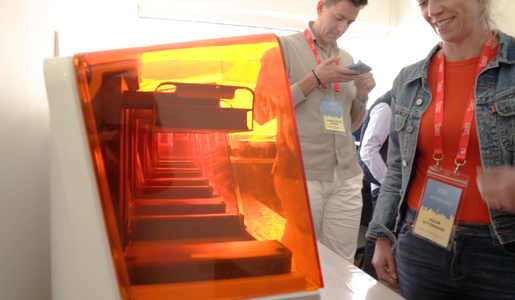
DSD Provider participants tour the DSD Lab at DSD Headquarters in Madrid.
Could DSD Provider be right for your dental clinic and career?
If you want to evolve your dentistry and dental practice in a realistic and efficient way - and learn pragmatic solutions you can implement right now - DSD Provider could be right for you.
You can join us in person or watch all sessions online by choosing the DSD Provider On Demand course. Find out more by choosing an option below:

